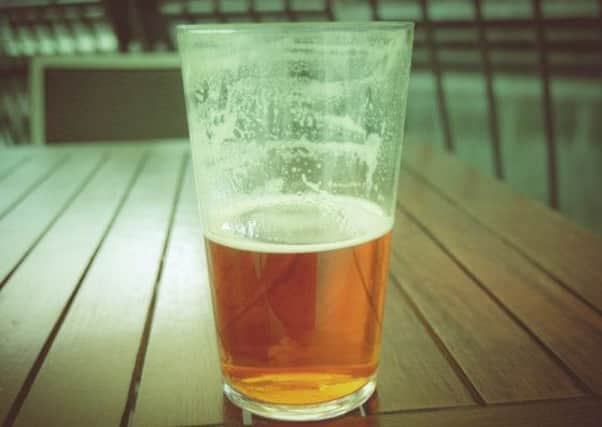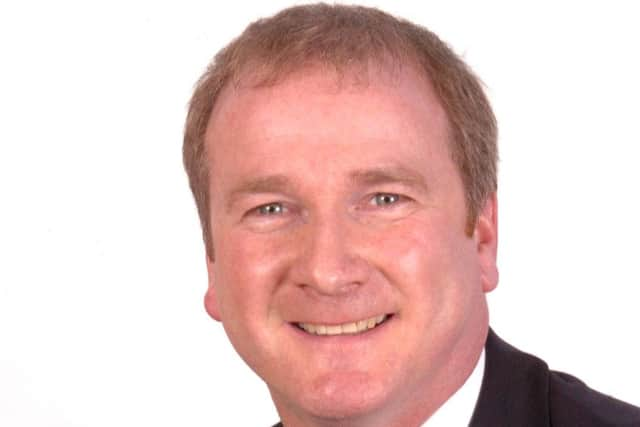Confidence growing in licensed trade sector


Brian Sheldon, regional director in Scotland of business selling agents Christie & Co, claims confidence in the sector was growing after years of uncertainty.
Industry leaders blame a downturn in trade over the last couple of decades over the smoking ban, the recession and a reduction in the drink drive alcohol limit, brought in just over a year ago.
Advertisement
Hide AdAdvertisement
Hide AdIndeed, Christie & Co’s own research with 1,600 businesses within the industry has shown they have suffered a downturn in trade of between 15 and 30 per cent because of the change in the drink drive laws.


And last month the UK’s chief medical officer cut the recommended alcohol limit to 14 units a week for both men and women.
However, Sheldon claimed 2015 was a positive year for the Christie & Co’s pubs team and, nationally, they transacted or advised on more than £6 billion of assets, £2bn up on the previous year.
He said: “We have seen more confidence in the sector which is driving growing private equity interest in new and exciting brands and we expect this to continue throughout 2016.
“With the average pub increasing in price by 10.1 per cent in 2015, and with 84 per cent of the pubs we sell remaining as licensed premises, it’s a great time to be in the trade.”


He has predicted that 2,000 to 3,000 pubs will be sold over the next three years.
However, Sheldon did warn that some pending legislation could still cause problems until they are made clearer.
He added: “There are uncertainties affecting the 2016 outlook, such as the introduction of the national living wage.
Advertisement
Hide AdAdvertisement
Hide Ad“This will have an impact on the bottom line and pubs may have to put up prices, which is tough in a competitive market that competes with the casual dining sector.
“Other factors include auto-enrolment pensions, business rates reviews, continued supermarket discounting, and the impending referendum on the UK’s membership of the EU not to mention the impact of the oil and gas price slump.”
Sheldon continued: “We have also seen a continued lack of migration from the south to Scotland which had historically provided lifestyle buyers to our local markets.
“However, the continued interest from private equity investors, the growth of the freehouse market fuelled by entrepreneurs and the continuing increase in multiple operators suggest there is a strong year ahead.”
However, the industry still faces its struggles.
One area of legislation which has clearly impacted on the pub trade in Scotland is the cut in the legal drink-drive limit which came into force in December 2014.
One year on from this limit being introduced, Christie & Co contacted 1,600 licensed trade operators across Scotland’s pub, hotel and restaurant sectors to discover the impact that the new limits were having on the hospitality industry.
The results, they say, were startling. A total 79 per cent of respondents said that they believed that the cut had had a negative impact on their business, as customers chose to drink in their own home rather than driving to their nearest, although often distant, local pub.
In turn, this also impacted on food sales, with more than 50 per cent of operators saying that their dry sales had fallen. The overall consensus was that the new legislation had negatively affected businesses by 15 to 30 per cent.
Advertisement
Hide AdAdvertisement
Hide AdSheldon said: “In a region such as Scotland, where hospitality business are often in remote, hard to reach areas where the only realistic way of going out for a quick pint or a meal is to drive a few miles, it isn’t difficult to see the effect that this is going to have.
“Our study showed that it was indeed those businesses in rural areas which had suffered the most.
“Scotland is a unique area. With the exception of a few large cities and towns, it is largely rural, and you can’t compare the pub trade in Glasgow or Edinburgh to that in Drumnadrochit or Dunphail.
“It has its own legislation and legislative processes that differ from the rest of the UK, and as a result, the market should be viewed differently.
“With many of our clients indicating that they are possibly leaving the trade within the next two years, it’s going to be a busy time for the sector, with many premises changing hands.”